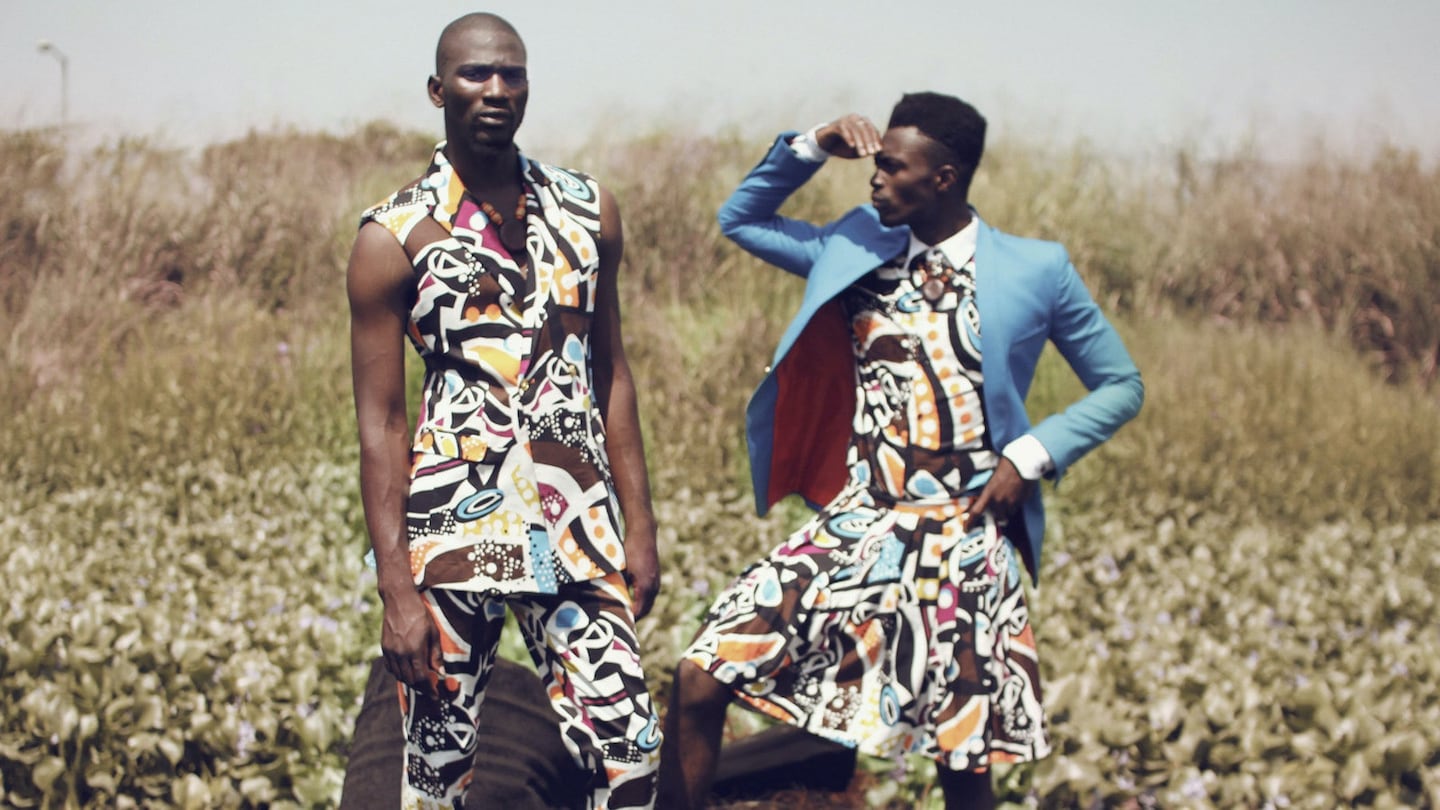
The Business of Fashion
Agenda-setting intelligence, analysis and advice for the global fashion community.

Agenda-setting intelligence, analysis and advice for the global fashion community.

LOS ANGELES, United States — In 2008, Not Just a Label (NJAL) was founded with the mission to create a platform supporting emerging designers at no cost — connecting diverse, global creative talent to both the international fashion industry and consumers worldwide.
NJAL works closely with over 200 design schools including Parsons School of Design and Central Saint Martins, and a number of international organisations, to attract designers on five continents to utilise the platform. Today, more than 40,000 designers from nearly 150 countries have created virtual portfolios of their collections and archives on the platform, forming the largest online fashion shopping and showcasing directory with a gross merchandise volume (GMV) exceeding $1 billion.
In 2017, NJAL launched its premium membership programme NJAL+, "customised to support the continual growth of an independent fashion brand." Positioned as the first membership programme available to emerging designers worldwide, for a small monthly fee it provides exclusive discounts to relevant services, as well as access to NJAL's online shop. Partners include Apple, FedEx, UPS, Squarespace, trade shows including Coterie and Tranoï, digital showrooms like JOOR and, now, BoF. As part of NJAL's response to the COVID-19 crisis, this programme has now been underwritten by the participating corporate partners and, as of today, is available at no cost to all designers to keep their businesses running.
The company is currently exploring how it can achieve its mission of building “a transparent and supportive fashion industry in which they can thrive” by recognising the value of its global community of creatives as a cloud solution, to both businesses offering services and cities seeking to stimulate their creative class. The company has so far launched partnerships with the cities of Los Angeles, New York City, Dubai and Venice.
Now, BoF sits down with Founder and Chief Executive Stefan Siegel to hear how the company is primed to support emerging designers as the industry undergoes a period of transformational disruption.

Not Just a Label's Founder and Chief Executive Stefan Siegel by Thilo Ross |
Source: Courtesy
What do you believe the current global circumstances have shown of the fashion system today?
We live in interesting times and the mission that I've always given my company is to showcase and in some ways underline the creativity of designers, not only those coming out of institutions like [Central] Saint Martins and living in fashion capitals, but also those working from the other 149 countries that we represent on Not Just a Label that might have less financial backing.
The system is no longer viable. The supply chains are completely unsustainable. And, as the current and unprecedented circumstances we are living through have shown us, if you pull out one card, the whole house of cards falls apart. It is important for the consumer to understand what they're buying, what they actually can have for probably the same price or even less. Lately it seems hype triumphed over true design — the caché provided by a celebrity name has become more important than the vision and craftsmanship of a designer. For me, this real-life version of The Emperor’s New Clothes must end. Something’s got to change.
How is evolving consumer sentiment impacting the market?
What is happening in fashion is similar to, let's say, where the music industry was five years ago — it was pretty much controlled by a few big labels. Now, almost everyone who uses music streaming services listens to one song from one artist, then another, then another. There’s a new approach towards buying from a longtail business model rather than having the whole market controlled by very few big brands.
In my experience, there is a growing demand from the consumer, saying, "When I spend my money, I want to know where it goes. I want to support a designer from a particular location, using a particular type of material, doing exactly this or that" — a level of specificity and connecting the maker directly with the consumer. The good thing is, with the majority of our emerging designers, they are as transparent as it gets because their businesses are so small and so simple – they source, design and manufacture locally, and then ship globally.
What do you believe is critical for an environment in which designers can thrive?
For me, that means being in a place where a designer can still afford to pay rent and, at the same time, experiment. The current system, especially in cities like London and New York, does not allow for designers to make mistakes and this is when we as a society fail and miss out on innovation and creativity.
The current system does not allow for designers to make mistakes and this is when we miss out on innovation and creativity.
I started the company a little over 10 years ago and things were hard amidst the financial crisis of 2008. I mean, designers might not have had a physical or digital way of showcasing their designs. They had no opportunity to sell their designs either. We've come a long way from that — the internet finally is being used — which means designers are now acting locally and globally at the same time.
But certain points of sales are missing in this world. You could blame the retail system, you could blame the traditional structure of the fashion industry, how it works and how a lot of designers are trained at design universities to go to fashion week twice a year and wait for a buyer to basically "rent" their first collection. The missing piece at the moment is how to retail millions of individual designs and that is a very active conversation that we're having, in terms of potentially transforming Not Just a Label into a marketplace – almost a luxury version of Etsy.
How do you support the designers on the platform?
Besides the unbiased showcasing opportunities we provide on NJAL, we feel that many emerging designers do not have access to information. Unless you live in cities where you can engage with the industry and attend certain events, it is extremely hard. Especially if you live in countries where the fashion industry is not as prominent. We often take for granted participating in conversations on sustainability or consumer trends, for example. We realised early on that every time we organise an offline event that focused on showcasing or retailing designs, for example, we should start introducing panel discussions and supporting our community with thought leadership.
Designers also need to understand that the creative process accounts for only 20 percent of their job and the rest is running a business. Therefore, we've always been very adamant on connecting designers with shipping providers, with law firms, with developers for online shops and provide access to a variety of business tools.
Designers need to understand that the creative process accounts for only 20 percent of their job and the rest is running a business.
Now, with the launch of our membership programme NJAL+ to our entire community, designers have access to services that can propel their businesses forward on terms they can afford. Equipped with access to information that enables them to understand that instead of going to Paris and going bankrupt because they have been told they must participate in a certain showroom that would “guarantee” business success, they can instead build an online shop and reach out to completely different markets more economically and more profitably.
Apple, UPS, FedEx, Squarespace, BoF — the list of companies is impressive and the discounts can be as significant as 60 percent on shipping services, for example. That makes a real difference when you are starting out.
What other strategic growth levers are you focused on?
I see an opportunity for us to disrupt the wholesale and retail markets. A month ago, we launched a joint venture with JOOR, a leading wholesale management platform where buyers place orders directly with brands. By partnering with JOOR, we can tap into a huge fragmented wholesale market and provide a transparent, safe and exciting trading platform for potentially 40,000 brands.
At the moment, we have 100 designers of ours testing the JOOR platform, in return for a small 5 percent commission. This is our first attempt at disrupting the outdated showroom business and allow designers to interact directly with the 200,000 buyers found on the JOOR platform.
At the same time, we're in discussions with a few partners to look at our B2C potential. Four million different designs and styles currently on Not Just a Label represent a GMV exceeding $1 billion, of which 80 to 90 percent of them can be sold directly from the designers’ studios. They're ready to be shipped out.
We have a huge opportunity, as well as a responsibility once this crisis is over, to tell the consumer: you can decide where to put your money, to know exactly how a design piece was made, and together start working towards a transparent supply chain that supports designers where they are, rather than supporting large and unnecessary marketing activations.
This sponsored feature is part of a media partnership between BoF and Not Just a Label.
From analysis of the global fashion and beauty industries to career and personal advice, BoF’s founder and CEO, Imran Amed, will be answering your questions on Sunday, February 18, 2024 during London Fashion Week.
The State of Fashion 2024 breaks down the 10 themes that will define the industry in the year ahead.
Imran Amed reviews the most important fashion stories of the year and shares his predictions on what this means for the industry in 2024.
After three days of inspiring talks, guests closed out BoF’s gathering for big thinkers with a black tie gala followed by an intimate performance from Rita Ora — guest starring Billy Porter.